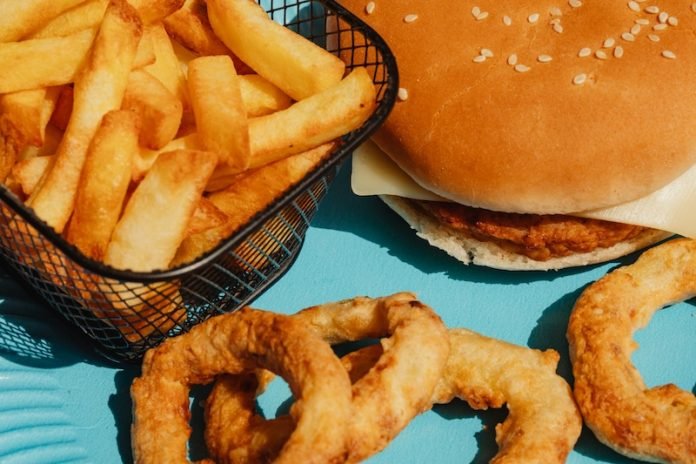
Navigating the world of nutrition can be tricky, especially for individuals dealing with both high blood pressure (hypertension) and diabetes.
These conditions not only require careful monitoring but also a balanced diet to manage effectively.
While a lot of emphasis is placed on what to eat, knowing what foods to avoid is equally important.
This article sheds light on those foods and explains why cutting them out can make a big difference in managing blood pressure and diabetes.
When someone has high blood pressure, their heart and blood vessels are under extra stress. Diabetes, on the other hand, affects how the body processes blood sugar.
Both conditions are closely linked to heart health and can increase the risk of cardiovascular diseases. That’s why eating right isn’t just about controlling blood sugar or blood pressure—it’s about protecting your heart.
One of the major culprits to avoid is salt. Salt, or sodium chloride, is known for increasing blood pressure. The body holds onto extra water to wash the salt away, which increases the volume of blood inside your blood vessels, and with it, your blood pressure.
For those with diabetes, high blood pressure can make it harder to control blood sugar levels and increase the risk of complications. It’s wise to limit processed and fast foods, which are often loaded with salt, even if they don’t taste particularly salty.
Next on the list is sugar and refined carbs. Foods high in these can cause sudden spikes in blood sugar levels, which can be particularly harmful for diabetics.
Sweets, sodas, and white bread are key foods to avoid. For someone with diabetes and high blood pressure, these blood sugar spikes can lead to increased damage to blood vessels, compounding the risk of heart disease.
Saturated and trans fats are another group to watch out for. Found in red meat, butter, cheese, and processed snacks, these fats can raise cholesterol levels, contributing to the buildup of fatty plaques in arteries and increasing the risk of heart disease.
For individuals managing both diabetes and hypertension, keeping cholesterol levels in check is crucial to avoid adding stress to their cardiovascular system.
Alcohol is a tricky one. While moderate consumption can have some health benefits, excessive drinking can raise blood pressure and interfere with the effectiveness of blood pressure medications.
It can also add empty calories, leading to weight gain—a risk factor for both high blood pressure and diabetes.
Lastly, caffeine deserves a mention. Though it affects people differently, some are more sensitive to caffeine, which can cause a temporary spike in blood pressure.
Monitoring how caffeine affects you personally is key, especially for those already managing high blood pressure and diabetes.
Research evidence strongly supports these dietary guidelines. Studies have shown that reducing intake of salt, sugar, saturated and trans fats, and monitoring alcohol and caffeine consumption can significantly improve blood pressure and blood sugar levels.
This, in turn, reduces the risk of developing complications associated with hypertension and diabetes.
Understanding the connection between diet and disease is powerful. By knowing which foods to avoid, individuals with high blood pressure and diabetes can take active steps towards better health.
Making dietary changes isn’t just about restrictions; it’s about creating a healthier, more balanced lifestyle that supports your well-being. Remember, managing these conditions doesn’t happen overnight, but with informed choices, you can enjoy a healthier life.
If you care about diabetes, please read studies that not all whole grain foods could benefit people with type 2 diabetes, and green tea could help reduce death risk in type 2 diabetes.
For more information about health, please see recent studies about unhealthy plant-based diets linked to metabolic syndrome, and results showing Mediterranean diet could help reduce the diabetes risk by one third.
Copyright © 2024 Knowridge Science Report. All rights reserved.



